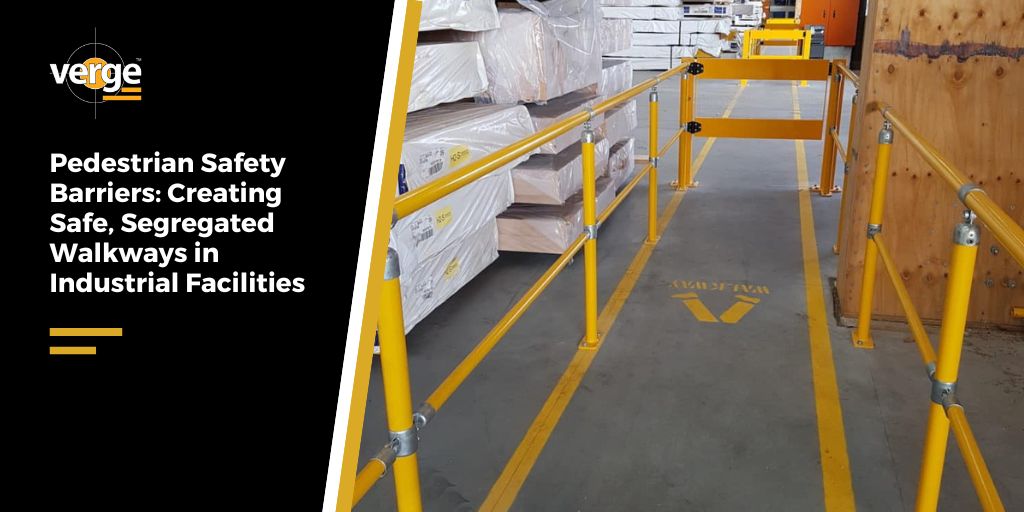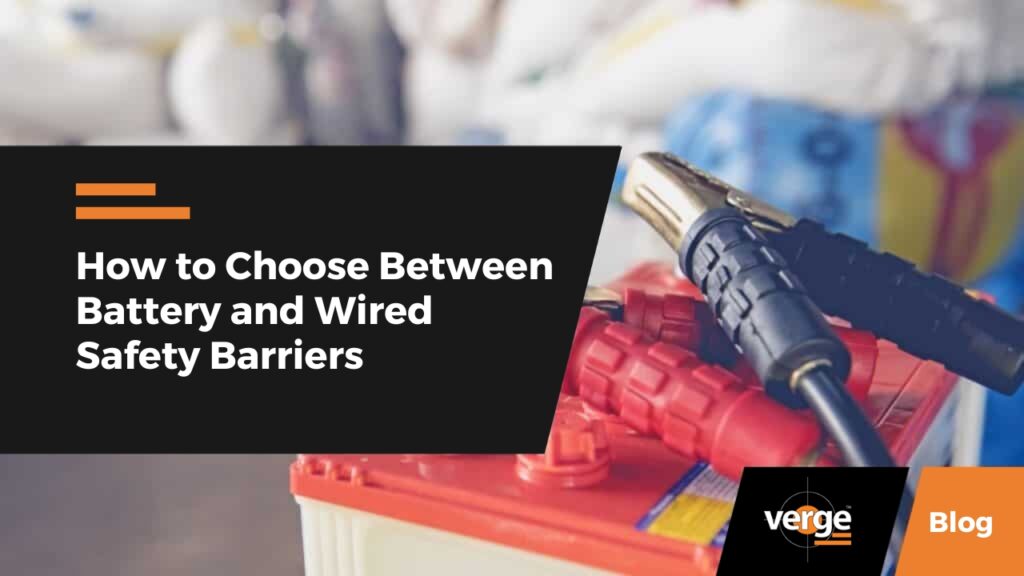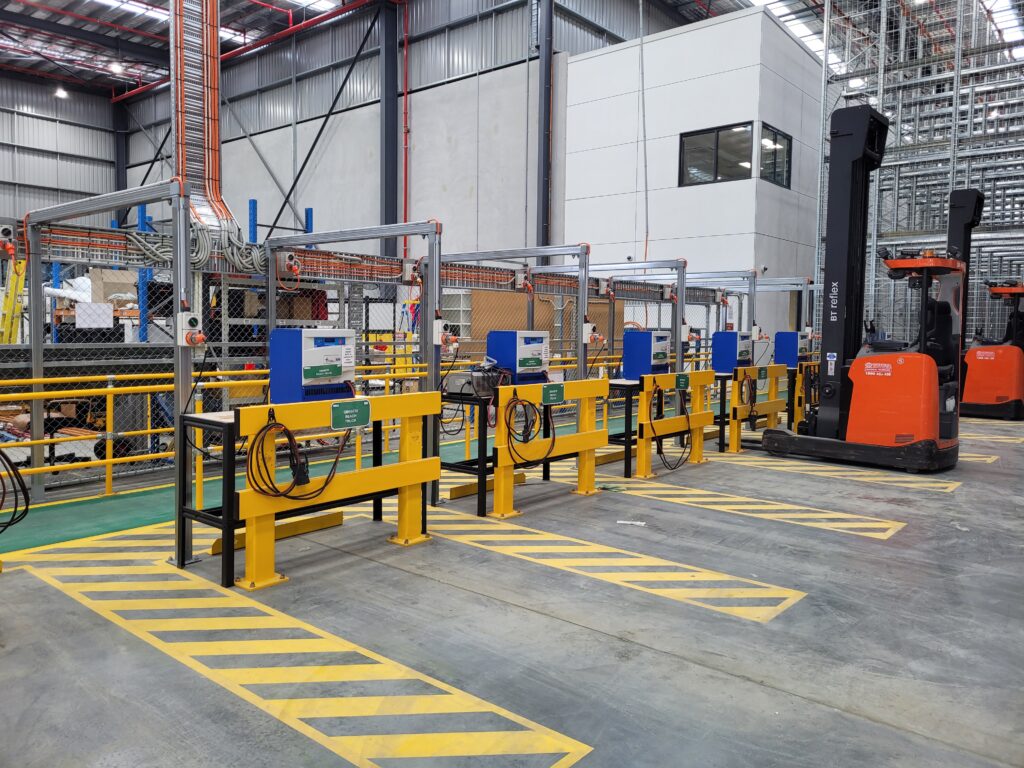
How to Choose Between Battery and Wired Safety Barriers
[rank_math_breadcrumb]

Many warehouses, factories, and industrial sites rely on powered safety barriers to improve visibility and provide warning signals. But choosing the wrong type—battery-powered or hard-wired—can lead to ongoing maintenance problems, inconsistent performance, and added costs. When barrier systems don’t match the site’s layout or resources, they become unreliable.
Battery-powered units are easy to install but require frequent checks and replacements. Hard-wired systems deliver continuous power but involve more complex setup and carry electrical maintenance risks. If either system fails during critical activity, it can expose workers to unguarded hazards or moving machinery.
The difference between these systems affects more than just cost—it determines how well your barrier performs under pressure. Choosing the right setup ensures safer operation and fewer disruptions. Below, we compare both types to help you decide which system fits your site.
Battery-powered barriers are easier to install in most environments. Since they don’t require electrical connections, they’re well-suited for temporary zones, mobile setups, or areas where cabling is not possible. The units usually run on D-cell batteries that are easy to replace without technical skill.
In contrast, hard-wired barriers require permanent electrical wiring and access to power outlets. In existing warehouse structures, installing electrical conduit can involve significant labour and may disrupt operations.
Electrical work also increases compliance checks and needs licensed installation.

Battery-powered barriers need battery replacements roughly every 6 months. Some models provide alerts via flashing lights when power is low, which allows teams to change them before failure. However, consistent battery supply must be maintained on-site to ensure no downtime. This adds to stock management and introduces manual maintenance cycles.
Hard-wired systems don’t have this issue—they receive continuous power, making them less likely to stop functioning unexpectedly. However, their dependence on grid power makes them vulnerable to outages.
If the site loses electricity, the system may shut down unless backup sources like UPS or generators are installed.
Battery-powered units are lower risk to maintain. There’s no exposure to live circuits during routine service, reducing the chance of electrical injury. This makes them more accessible for general maintenance teams with minimal training.
Hard-wired systems, on the other hand, may introduce electrical safety risks during maintenance. Technicians working on wiring must have proper training and follow lockout procedures.
In older facilities, existing electrical loads may increase the risk of overload if too many barriers are connected without assessment.
Hard-wired safety barriers generally deliver stronger and more consistent power. Because they’re linked to electrical circuits, they can run larger light arrays, louder alarms, or extended use features without the performance dips seen in battery units nearing depletion.
Battery-powered units are limited by the capacity of their cells. As power drops, performance can decline gradually until batteries are changed. This may not be suitable for high-alert zones or continuous-use areas. For quieter corners or low-traffic entry points, however, battery units are often more than enough.

Battery-powered barriers are cheaper upfront and faster to deploy. No need for cabling, no electrical installation fees, and minimal tools required. Over time, however, battery costs add up, especially on larger sites with many units. Spare batteries must be stocked, and changeover tasks add to labour.
Hard-wired barriers are more expensive to install but may require less frequent maintenance. There’s no ongoing battery purchase cost, and less staff time is spent on checks. However, the price of electrical work and risk assessments must be factored in.
Both barrier types serve important functions, but not all sites need the same setup. Battery-powered options suit mobile layouts, short-term use zones, or areas with limited access to power. Hard-wired options suit long-term, high-use zones where barrier alerts must always remain active.
For example, temporary pedestrian access routes or overflow lanes benefit from portable battery units. Busy forklift corridors with frequent turns or entry zones near hazardous machinery are better served by permanent hard-wired systems.
At Verge Safety Barriers, we guide businesses in selecting barrier systems that match their operational conditions and power capabilities. If you’re looking to improve visibility and hazard awareness using a powered unit, our Verge Vivid Gate Warning Light Signal is a reliable addition.
It integrates with safety gates and barriers to deliver strong visual alerts where consistent power or battery operation is needed.
Whether your setup suits battery-powered alerts or hard-wired units, we help you plan installations that meet both safety goals and site restrictions.

*Applies to online orders only. *Cannot be used in conjunction with any other offer **Must purchase within 3 months of receiving the voucher ***Minimum order $1000
"*" indicates required fields
If you need assistance with selecting a product, would like a quote or want to ask a question please call our friendly team on 1800 765 539